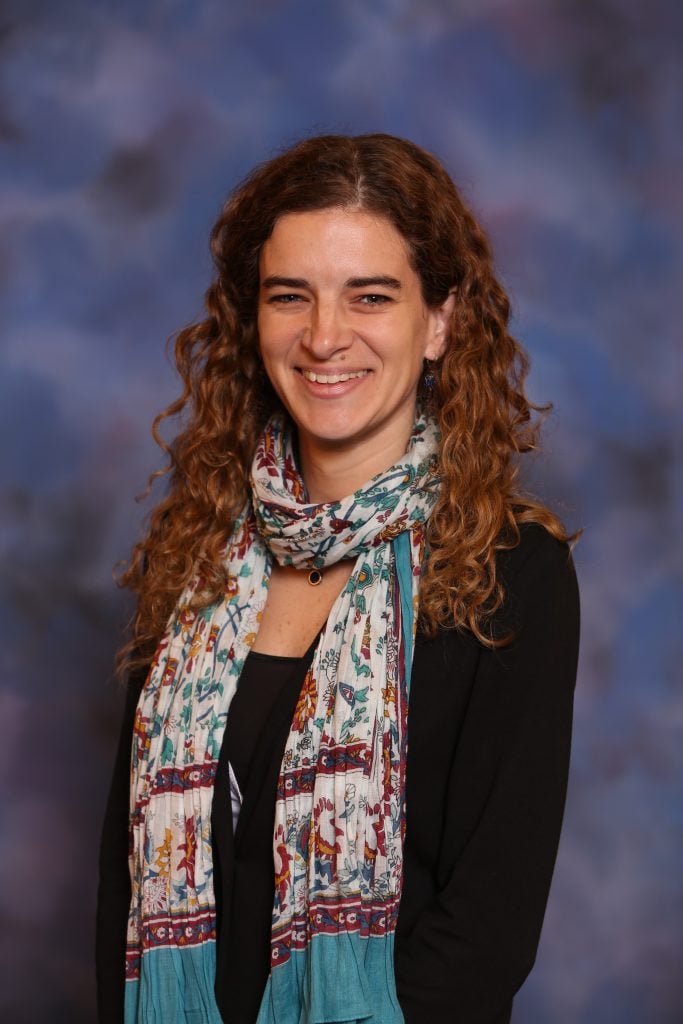
My fascination for the pituitary gland began when I was studying biotechnology at the University of Quilmes in Argentina. One day, I was in physiology class with Dr. Diego Golombek — the best teacher ever — and the topic of the day was “The Pituitary Gland.” That day I learned how important this tiny gland is to maintain many bodily functions. I also realized how much I love research. I spied into his lab and thought, “I want to be that person with a lab coat and a mouse in one hand and a pipet in the other.”
After graduating, I started my PhD under the mentorship of Drs. Damasia Becu and Marcelo Rubinstein working with pituitary tumors and transgenic mice (my other love). I conducted a cell-specific genetic ablation in mutant mice that selectively lack dopamine D2 receptors (D2R) in pituitary lactotropes (lacDrd2KO) or neurons (neuroDrd2KO). This study allowed us to make two important discoveries. First, central D2Rs mediate a neuroendocrine-exocrine cascade that controls the maturation of the GH axis and downstream signals that are critical for fitness, social dominance, and competition between adult males. Second, prolactin has an important role as a metabolic hormone. I also extended the study to human pituitary adenomas and I found a rise in cell proliferation and angiogenesis in these tumors relative to controls. This work has provided the basis for developing new treatments for pituitary adenomas based on antiangiogenic therapies.
: Maria Ines Perez-Millan, PhD
Affiliation: University of Buenos Aires, CONICET, Argentina
Mentors: Damasia Becu-Villalobos, PhD; Marcelo Rubinstein, PhD, Sally Camper, PhD
How has the Endocrine Society supported you in your career? The Endocrine Society supported each step of my career since I was a PhD student until today as an independent scientist starting my own lab back in Argentina.
I was so lucky. Marcelo always told me, “You should go and do science internationally. Living in another country is an experience everyone should have.” During my last year of graduate school, I was nominated by the Endocrine Society for the International Endocrine Scholar Program and selected to receive a scholarship to attend the meeting and interview for postdoctoral training in the U.S. During ENDO, I met Dr. Sally Camper, professor at the University of Michigan, and after discussing projects, I decided to go to her lab for a postdoctoral position to gain experience in human genetics, genomics, and embryonic stem cell technology. The main focus of my postdoctoral research was the transcription factor PROP1. PROP1 mutations in mice and humans cause multiple hormone deficiencies and pituitary hypoplasia, but the mechanism underlying the disease pathophysiology was not understood. We discovered that PROP1 is essential for maintaining proliferation of stem cells and stimulating them to undergo an epithelial to mesenchymal transition-like process.
The ENDO meetings consistently help me achieve my research plans by permitting me to participate in exceptional international meetings, to exchange ideas, and provide an opportunity to collaborate within the international scientific community, and to acquire advanced technologies.
I was lucky again. Sally was an incredible mentor and she encouraged me to start my independent career. In 2016, I came back home and started my own lab at the University of Buenos Aires in Argentina. The principal aim of my research is to identify the major genetic factors that predispose to and cause hypopituitarism and craniofacial disorders. I established collaborations in Buenos Aires with clinical endocrinologists. We combine molecular approaches (Next Generation Sequencing or NGS panels and WGS), in vitro functional assays, and in vivo (generation of mutant mice) analyses.
The ENDO meetings consistently help me achieve my research plans by permitting me to participate in exceptional international meetings, to exchange ideas, and provide an opportunity to collaborate within the international scientific community, and to acquire advanced technologies. These opportunities are critical for launching my independent career and for overcoming challenges associated with working in a less developed country.
In 2017, I won the Early Investigator Award from the Endocrine Society. This allowed me to not only to attend the meeting, but also to increase my networking and establish new collaborations.
In 2018, I was invited to present my work in a symposium at ENDO. This was an incredible opportunity to show and discuss what I am doing in my lab in Buenos Aires, and it positioned me as local leader in genetics in endocrinology in Argentina. GO ENDO!
EDITOR’S NOTE: The opinions and views of the author do not necessarily represent those of Endocrine News or the Endocrine Society.
If you would like to share your story with our readers around the world, contact Editor Mark A. Newman at [email protected].
Share your stories, photos, and experiences on social media using the hashtag #IAmEndocrinology. Don’t forget to tag @Endocrine_News and @TheEndoSociety on Twitter.

